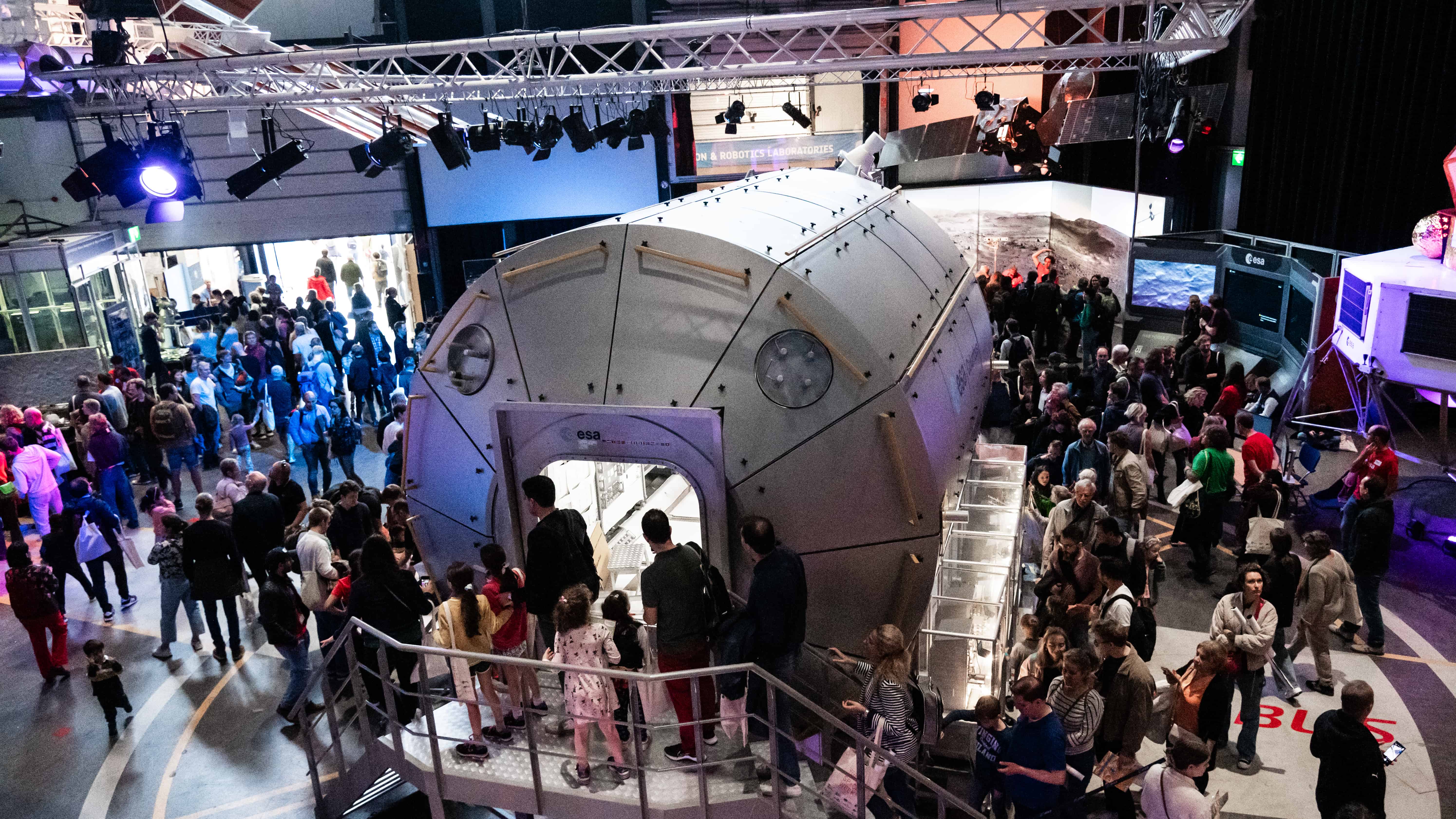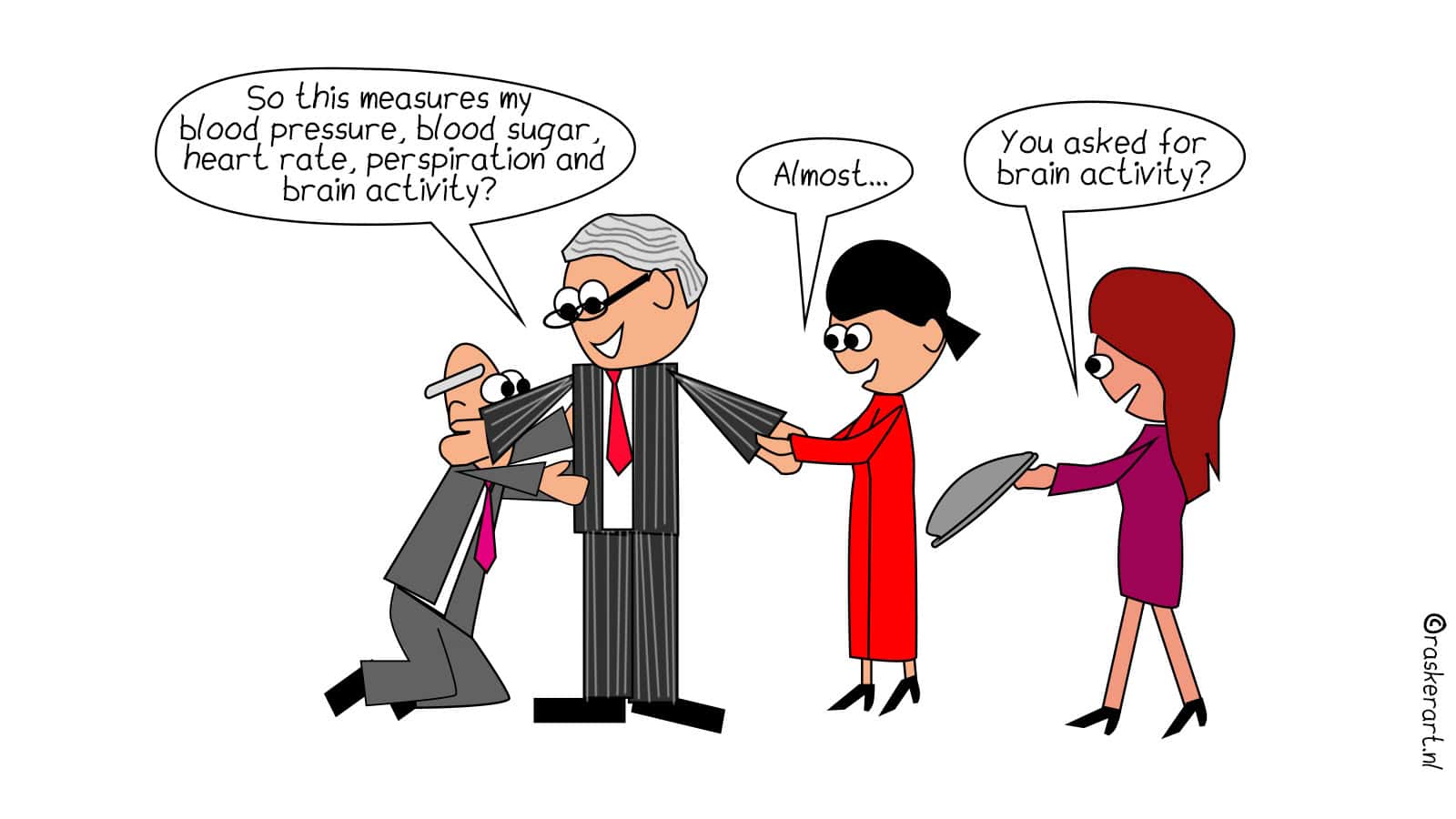
In our weekly recap on Sunday, we as editors look back at the past seven days. We do this at the suggestion of our cartoonist Albert Jan Rasker. He chooses a subject, makes a drawing, and we take it from there. What were we talking about in the newsroom? What other topics caught our eye? How do we actually work at Innovation Origins? Everything can come by. If you also want this newsletter straight to your inbox every Sunday morning, just subscribe here.
Last week’s main topic in our newsroom was a bit more trivial in nature than in most other cases. In fact, it was mostly about ourselves. Here’s the thing: in our now almost eight years of existence, we’ve never been very serious about our housing. This led to moving from office to office and even a considerable period of being the guest of another organization (thanks again, Brainport Development!). As long as it was cheap, we were okay with it. But that system was not really sustainable anymore. We have grown in ambition, staff, and activities – which includes a real office.
Well, we succeeded: since last week, we have no less than five office spaces at our disposal in one of the liveliest buildings on the High Tech Campus in Eindhoven. It’s still a bit spacious for us, but who knows, if the growth continues as we’ve seen over the past year, we’ll get it all filled up soon enough. We are delighted with it and look forward to all the new contacts we will make here.
Meanwhile, Albert Jan Rasker has, as he does every week, made his choice for the ‘story-of-the-week’. It is about the potential replacement of cows (not as living beings, but as part of the food industry) by algae. According to researchers at the Karlsruher Institute of Technology, algae cultivation can be an excellent alternative to livestock farming. “The production of biomass with artificial light does not require agricultural land. You can also make use of, for example, empty stables. This and the high yield of valuable substances make algae cultivation a potentially lucrative business.” But, they honestly add, it will take some time before this process is truly scalable and competitive. Our cartoonist, in the meantime, knows what we must do: make any innovation resemble what we already know, and all will be fine 🙂
What else caught our eye in our stories?

We are now at episode 7, but Maurits Kuypers’ train journey through Germany takes him through more impressive innovative regions time and time again. This week his train stopped in the Ruhr area.

Speaking of impressive: sit back and enjoy. Mauro Mereu was a guest for a day at the departments of the Delft University of Technology that deal with mobility. In his story, various initiatives are reviewed, focussing on transport over the land, the sea, and in the air.

Also interesting to follow is the climate case brought by six Portuguese young people against 33 European countries. They feel discriminated against as young people because they will suffer much longer from the climate crisis than the generations before them. The case is similar to the famous Dutch Urgenda case of a few years ago. Curious how it will end. Read this story to know what it is all about.

Every day we put a start-up in the spotlight. One of the most striking of last week is Autoscriber, which wants to support healthcare professionals during consultations. With speech recognition software that recognizes the specific GP language, the tool ensures that during the consultation, the conversation is automatically recorded. A diagnosis suggestion function is included.

Did we mention that the first part of our series ‘Decarbonizing Europe‘ is ready? For all 27 EU countries, we have a country story (what is this country doing to become energy neutral?) and at least one project story (typical examples of initiatives that could have an impact). In addition, we offer analysis and interpretation for the whole of Europe. We will soon be working on part two of this series, but for now, let yourself be inspired by the dozens of examples in this series.
But of course, there was much more to enjoy. Check out our latest articles here.








